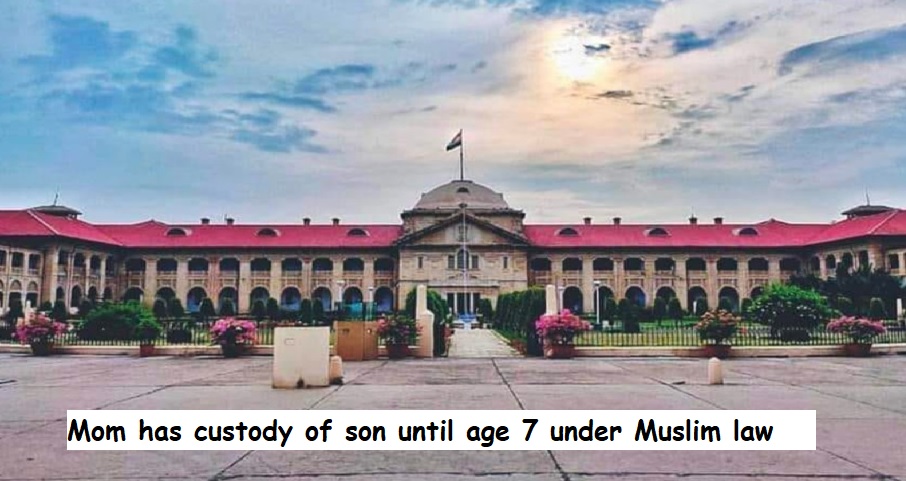


The Allahabad High Court recently addressed a case involving the custody of a male child under Mohammedan Law, asserting that the mother is entitled to custody until the child reaches the age of seven. The judgment came in response to a habeas corpus petition filed by a mother named Rehana, seeking custody of her 3-year-and-7-month-old son, Takbeer Khan, who was currently residing with her husband, Intiyaj Khan.
Justice Karunesh Singh Pawar presided over the case, noting the particular circumstances surrounding the tender age of the detenue (Takbeer Khan). The court, while allowing the habeas corpus petition, expressed the view that, considering the child's age, custody should be granted to the mother, Rehana. The court directed Intiyaj Khan, the husband, to promptly hand over the custody of Takbeer Khan to his mother.
Rehana's plea in the habeas corpus petition shed light on a troubled domestic situation. She alleged that her husband, Intiyaj Khan (opposite party No.4), subjected her to physical abuse under the influence of alcohol. In response to these alleged atrocities, she returned to her parental home with her son in 2021. Despite a temporary resumption of cohabitation with her husband, she claimed that his behavior did not change. This led to the filing of a case under the Protection of Children from Sexual Offences (POCSO) Act against Intiyaj Khan, resulting in his charge-sheeting and approximately a year of incarceration.
Rehana further contended that upon Intiyaj Khan's release on bail, he engaged in an extramarital affair, which she objected to. Subsequently, her husband allegedly coerced her to vacate the matrimonial residence while retaining custody of Takbeer Khan against her will. In response to this situation, Rehana filed the habeas corpus petition seeking judicial intervention for the custody of her son.
The court, at the outset, acknowledged that at the time of filing the petition, Takbeer Khan was two years old, and at present, he is around three years and seven months old. Additionally, it was undisputed that Intiyaj Khan was facing rape charges.
In its deliberation, the court considered the precedent set by the judgment in Nil Ratan Kundu's case, emphasizing that the pendency of a criminal case is an essential factor in assessing the character of the proposed guardian. Notably, Intiyaj Khan faced serious charges of rape, a factor the court could not overlook while exercising habeas corpus jurisdiction. The court emphasized its primary consideration, which was to protect the rights of the minor child, Takbeer Khan, who was the subject of the petition. The well-being and welfare of the child, along with considerations for his future prospects, were crucial elements in the court's decision-making process.
Consequently, the court issued a writ of habeas corpus, directing Intiyaj Khan, the opposite party No.4, to promptly hand over the custody of Takbeer Khan to the petitioner, Rehana. This decision reflects the court's commitment to safeguarding the rights and interests of the minor child in light of the challenging circumstances presented in the case.
TAGS: Allahabad High Court Mohammedan Law Custody Habeas Corpus Rehana Takbeer Kha